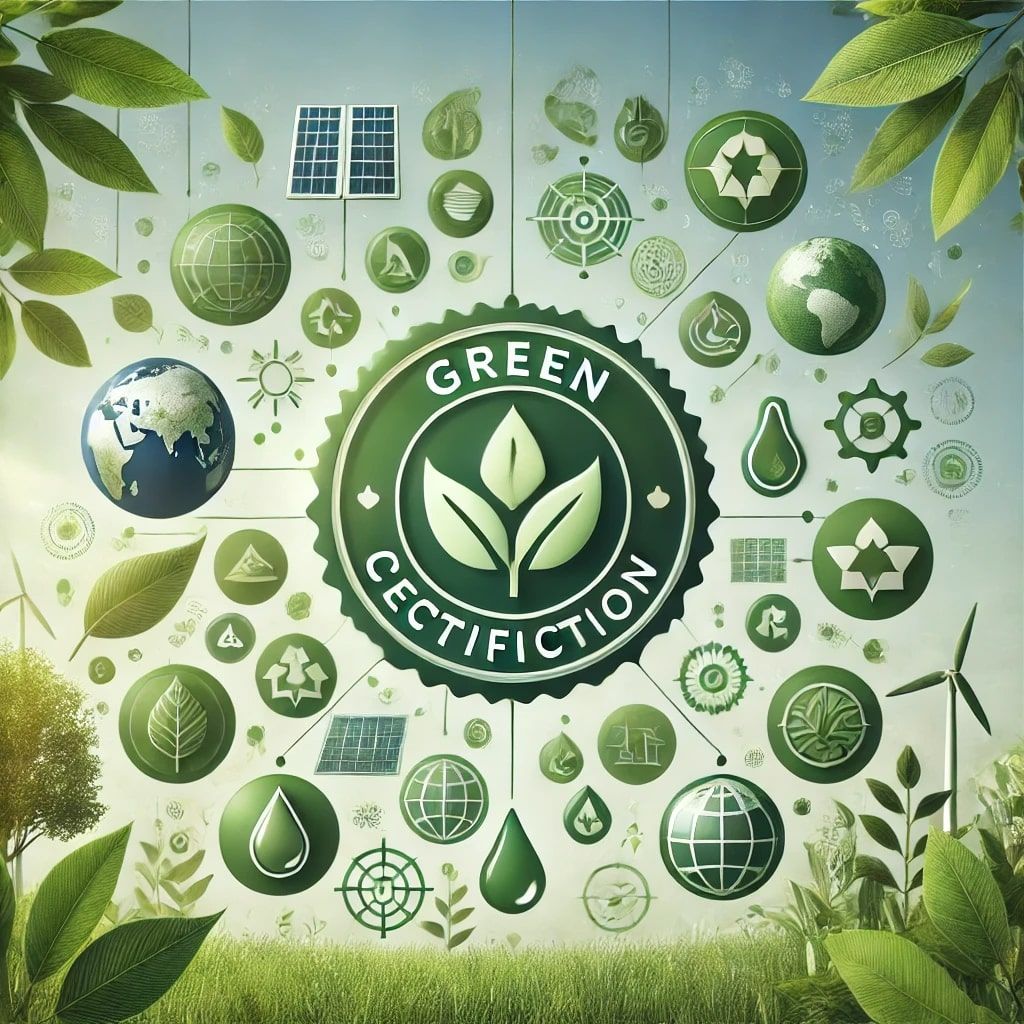
Navigating the World of Environmental Certifications: What they are and Why they matter
With increasing environmental awareness and a growing demand for sustainable business practices, environmental certifications have become a crucial tool for ensuring that companies and products meet specific ecological standards. These certifications provide a method to verify and communicate a commitment to sustainability, offering businesses and consumers a clear signal of environmental respect. This article explores the main environmental certifications, how they work, and their impact on the market.
What are environmental certifications?
Environmental certifications are attestations issued by independent bodies confirming that a company, product, or process adheres to certain ecological standards. These standards can cover a wide range of aspects, including waste management, energy consumption, greenhouse gas emissions, and resource sustainability. Certifications can be sector-specific, such as for food production, or more general, like those related to environmental management.
Key Environmental Certifications
1.ISO 14001: Environmental Management System
ISO 14001 certification is one of the most globally recognized standards for environmental management. It provides a framework for companies to improve their environmental performance through the adoption of an environmental management system (EMS). ISO 14001-certified companies demonstrate a commitment to reducing the environmental impact of their activities and complying with current regulations.
2.EMAS (Eco-Management and Audit Scheme)
EMAS is a voluntary environmental management system developed by the European Union. Organizations that obtain EMAS certification must not only comply with environmental regulations but also continually improve their environmental performance and publish regular environmental reports.
3.Energy Star
Energy Star is an international program that certifies high-energy-efficiency products and buildings. Initially created in the United States, the Energy Star label is now globally recognized and ensures that products, such as appliances and computer equipment, consume less energy without compromising performance.
4.FSC (Forest Stewardship Council)
FSC certification ensures that wood and paper products come from sustainably managed forests. This includes protecting biodiversity, respecting workers' rights, and responsibly managing forest resources.
5.LEED (Leadership in Energy and Environmental Design)
LEED is a certification system for sustainable buildings that evaluates energy efficiency, resource use, and eco-friendly design. LEED-certified buildings must meet rigorous sustainability criteria and demonstrate a reduced environmental impact.
Why are environmental certifications important?
Credibility and Transparency:
Certifications provide tangible and verifiable proof of a company's commitment to environmental sustainability. This enhances transparency and trust between businesses and consumers, reducing the risk of greenwashing (misleading marketing practices that exaggerate a company's environmental efforts).
Regulatory Compliance:
Environmental certification helps companies ensure that their operations comply with local and international environmental regulations, reducing the risk of penalties and fines.
Competitive Advantages:
Certified companies can gain a competitive edge in the market by attracting sustainability-conscious customers and enhancing their reputation.
Continuous Improvement:
Certification processes encourage companies to continually improve their environmental practices, leading to more efficient resource management and reduced environmental impact.
Environmental certifications play a vital role in promoting sustainability and ensuring that companies and products meet high standards of environmental respect. By providing independent and credible verification of ecological practices, these certifications help build a more sustainable future, fostering genuine commitment to protecting our planet. As environmental awareness and consumer expectations rise, environmental certifications will continue to be a key element in the transition toward a greener and more responsible society.




